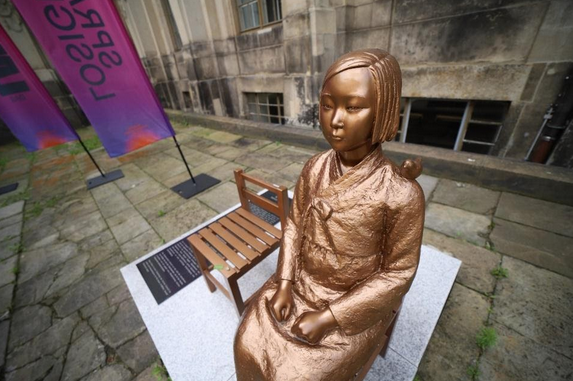This special issue of The Asia-Pacific Journal: Japan Focus on “The ‘Comfort Women’ as Public History,” edited by Edward Vickers and Mark Frost, analyzes the turn since the early 2000s towards “heritagization” of this controversial issue. Papers include testimony from scholars involved in campaigns on behalf of comfort women, or in movements for their commemoration (Shin, Su, Norma); more conventional academic analyses of transnational efforts to secure recognition for comfort women, whether through litigation (Hao) or heritage activism (Vickers, Schumacher); and personal reflections by an academic educator (Heo) and filmmaker (Dezaki) who in different ways have sought to promote international understanding of this issue. An introductory essay by the editors, Frost and Vickers, examines how the reframing of this issue as “heritage” has been accompanied by increasing entanglement with the global politics of atrocity commemoration. Questioning any necessary equation between heritagization and reconciliation, they stress the need for representation of comfort women as public history to pay due regard to nuance and complexity.
A separate, supplementary special issue (“Five Letters,” edited by Alexis Dudden), published alongside this one, engages with an early 2021 intervention in the comfort women controversy by Harvard University Law Professor, Mark Ramseyer. This features a “Study Guide” by Tessa Morris-Suzuki that further underlines the importance of scholarly rigour in underpinning public debate over the “comfort women”.
- Introduction: The “Comfort Women” as Public History – Scholarship, Advocacy and the Commemorative Impulse – Mark R. Frost and Edward Vickers
- Transmitting Knowledge and Gaining Recognition: Chinese “Comfort Women” Reparation Trials in the 1990s and 2000s – Xiaoyang Hao
- Slaves to Rival Nationalisms: UNESCO and the Politics of “Comfort Women” Commemoration – Edward Vickers
- Asia’s Global Memory Wars and Solidarity Across Borders: Diaspora Activism on the “Comfort Women” Issue in the United States – Daniel Schumacher
- Reconstructing the History of the “Comfort Women” System: The Fruits of 28 Years of Investigation into the “Comfort Women” Issue in China – SU Zhiliang, translated by Edward Vickers
- Voices of the “Comfort Women”: The Power Politics Surrounding the UNESCO Documentary Heritage – Heisoo Shin
- Sexual Violence in Wartime and Peacetime: Violence Against Women in the 20st Century – Seiya Morita and Caroline Norma
- When National Narratives Clash in Multinational University Classrooms: a Pedagogical Perspective – Emilia S. Heo
- Debating Shusenjo – the Main Battlefield of the Comfort Women Issue: Director Miki Dezaki in Conversation with Mark R. Frost and Edward Vickers



